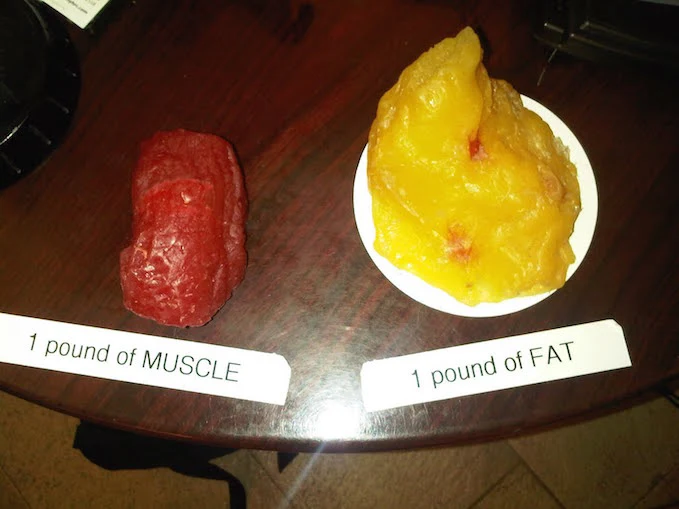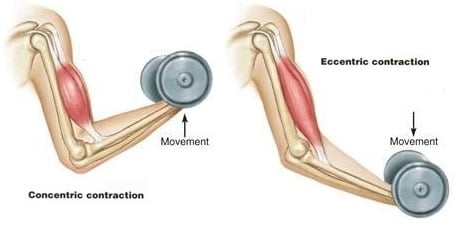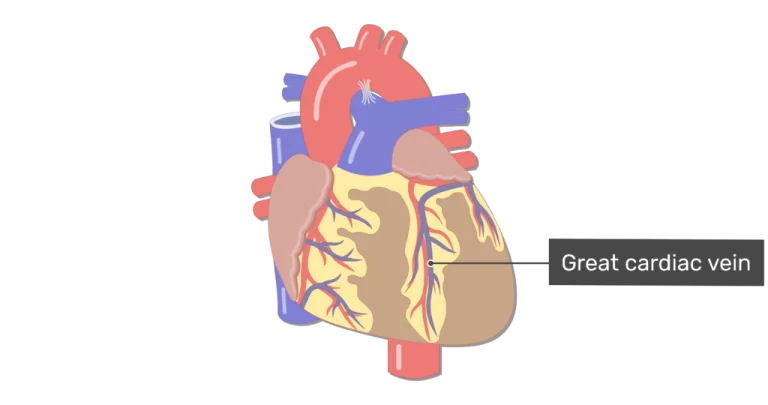Muscle vs Fat: Which is Heavier?
Muscle vs Fat: Introduction
You may have heard that muscle weight is more than fat but a pound of muscle is not heavier than a pound of fat. The distinction between the two is density. A pound is a unit of weight, and it is the same regardless of the substance being measured. One pound of water weighs the same as one pound of lead, and one pound of muscle weighs the same as one pound of fat.
Yet, muscle is more dense than fat, suggesting it takes up smaller space. This is why people with a lot of muscle often look leaner than people with the same amount of body fat, even if they weigh the same on a scale.
Muscle is also more metabolically active than fat, which means it burns more calories even at rest. Because of this, people with more muscle typically have a higher metabolism and burn more calories overall, even when they aren’t working out.
If you are trying to lose weight or improve your body composition, it is important to prioritize building muscle. Strength training and eating a healthy diet high in protein can help you accomplish this.
What Are the Differences Between Muscle and Fat?
- The primary differences between muscle & fat are that:
- Muscle is contractile, while fat is not
- Muscle is more metabolically active than fat
- Muscle is denser than fat
Muscles vs.Fat: Understanding Body Composition
Understanding the difference between muscles and fat is crucial for anyone seeking to improve their health and fitness. While both are essential components of the human body, they serve vastly different purposes and have varying impacts on overall well-being.
Muscles
Muscles are the contractile tissues that enable movement. They are composed of bundles of muscle fibers, which are specialized cells that can shorten and lengthen, generating force. Muscle tissue is found throughout the body, including in the arms, legs, back, chest, and abdomen.
Functions of Muscles
- Movement: Muscles allow us to perform a wide range of actions, from basic tasks like walking and lifting to more complex movements like dancing and playing sports.
- Posture: Muscles support the body’s framework and maintain proper posture.
- Strength: Muscles provide strength and power, enabling us to lift objects, perform physical activities, and resist external forces.
- Metabolism: Muscle tissue is metabolically active, which means it consumes calories even when not in use. This contributes to overall energy expenditure and can aid in weight management.
FAT
Fat, also known as adipose tissue, is stored energy as triglycerides. It is found throughout the body, under the skin (subcutaneous fat), and around internal organs (visceral fat).
Functions of Fat
- Energy storage: Fat serves as a primary energy source for the body, providing fuel during times of limited food intake.
- Insulation: Fat helps regulate body temperature by acting as an insulator, keeping us warm in cold environments.
- Cushioning: Fat cushions and protects vital organs from injury and shock absorption.
- Hormone production: Fat cells produce hormones that regulate metabolism, appetite, and reproductive function.
Body Composition
The balance of muscle, fat, bone, and other components in the body is referred to as body composition. It is a more accurate measure of health than simply weight alone. A healthy body composition is characterized by a higher percentage of muscle and a lower percentage of body fat.
Measuring your true body composition
BMI and Muscles
- Body mass index (BMI) is a way to evaluate body fat that depends on height and weight. It can be calculated by dividing a person’s weight in kilograms by the square of their height in meters.
- BMI is a quick and easy way to assess whether someone is at risk for weight-related health problems, such as heart disease, stroke, type 2 diabetes, and some types of cancer.
- However, BMI does not consider muscle mass, so it can be misleading for people who are very muscular. For example, a bodybuilder may have a high BMI because of their muscle mass, but they may not have any excess body fat. Conversely, someone who is overweight or obese may have a normal BMI if they have a lot of muscle mass.
- Because BMI does not account for muscle mass, it is not a perfect measure of health. It is important to consider other factors, such as body composition, physical activity level, and family history when assessing your health.
- If you are concerned regarding your weight or health, speak to your physician. They can help you determine if you are at risk for weight-related health problems and recommend ways to improve your overall health.
Here are some additional things to keep in mind about BMI and muscle:
- Muscle weighs more than fat, so people who are very muscular may have a higher BMI than people who have more body fat.
- Muscle mass can change over time as a result of changes in diet, exercise, and other lifestyle factors.
- Muscle mass is essential for general health and wellness. It can help to improve strength, balance, and metabolism.
Here are some other methods for measuring
Skinfold calipers:
- Skinfold calipers are used to measure the thickness of subcutaneous fat at various points on the body.
Hydrostatic weighing:
- Hydrostatic weighing involves weighing yourself underwater to determine your body volume.
DEXA scan:
- A DEXA scan, or dual-energy X-ray absorptiometry scan, uses low-dose X-rays to measure bone density, lean body mass, and body fat.
Bioelectrical impedance analysis (BIA):
- Bioelectrical impedance analysis (BIA): BIA is a method of estimating body fat based on the body’s resistance to electrical current.
If you are concerned regarding your weight or fitness, speak to your physician. They can help you determine the best way to measure your body fat and assess your overall health.
Benefits of a Healthy Body Composition
- Improved physical performance: Having more muscle mass enhances strength, endurance, and overall athletic performance.
- Reduced risk of chronic diseases: A lower body fat percentage is associated with a decreased risk of developing conditions like heart disease, stroke, type 2 diabetes, and certain types of cancer.
- Stronger bones: Muscle contractions help stimulate bone growth and maintenance, reducing the risk of osteoporosis.
- Enhanced mood and mental well-being: Exercise and physical activity, which are essential for building muscle and reducing body fat, have been shown to improve mental health and reduce symptoms of depression and anxiety.
Ways to Improve Body Composition
- Engage in regular physical activity: Exercise, particularly strength training, helps build muscle mass and burn calories.
- Adopt a healthy diet: Focus on consuming whole, unprocessed foods, including plenty of fruits, vegetables, and lean proteins. Limit intake of sugary drinks, processed foods, and unhealthy fats.
- Maintain a healthy weight: Excess body fat can be reduced through a combination of diet and exercise.
- Prioritize sleep: Adequate sleep is crucial for muscle growth and repair.
- Manage stress: Chronic stress can contribute to increased body fat storage. Find healthy ways to manage stress, such as exercise, relaxation techniques, or time in nature.
Remember, achieving a healthy body composition is a gradual process that requires consistent effort and dedication. By making lifestyle changes that prioritize physical activity, nutrition, and overall well-being, you can improve your body composition, enhance your health, and boost your overall quality of life.
The Truth About Muscle Density and Body Weight
- Muscle density and body weight are two important factors to consider when assessing your overall health and fitness. Muscle density is the amount of muscle mass you have relative to your body weight. Body weight is the total weight of your body, including muscle, fat, bone, and water.
- Muscle density is the amount of muscle mass in a given volume. Muscle is dense than fat, so a pound of muscle will take up less space than a pound of fat. This means that two people who weigh the same can have very different body compositions. The person with more muscle will be smaller and leaner than the person with more fat.
- Body weight measures the total force of gravity on an object. A number of factors, including muscle mass, fat mass, bone density, and water weight influence it.
- Muscle is more active metabolically than fat, so it burns more calories at rest. This means that people with more muscle mass tend to have a higher metabolism and burn more calories even when not exercising.
- Muscle is also more important for strength and endurance than fat. People with more muscle mass are stronger and can perform more physical activity. For these reasons, it is generally considered to be more important to have a higher proportion of muscle mass than fat mass. This can be performed via a mixture of diet and activity.
Building Muscle vs. Losing Fat: Which is More Important?
Both building muscle and losing fat are important aspects of achieving a healthy body composition and improving overall fitness. While the relative importance of each may vary depending on individual goals and preferences, both contribute to a healthier and more desirable physique.
Building Muscle
Muscle mass plays a crucial role in metabolism, strength, and overall health. It helps burn more calories at rest, enhances physical performance, and improves posture and balance. Additionally, having a higher proportion of muscle mass can lead to a more defined and toned appearance.
Benefits:
- Increased strength and endurance
- Improved metabolism
- Reduced risk of injury
- Improved appearance
Risks:
- Overtraining
- Muscle soreness
- Increased risk of certain injuries if not done properly
Losing Fat
Excess body fat, particularly around the abdominal area, increases the risk of various health issues, including heart disease, type 2 diabetes, and certain types of cancer. Reducing body fat percentage can improve overall health, reduce the risk of chronic diseases, and enhance self-confidence.
Benefits:
- Decreased hazard of heart disorder, stroke, & type 2 diabetes
- Improved joint health
- Reduced risk of some types of cancer
- Improved appearance
Risks:
- Loss of muscle mass
- Increased hunger
- Fatigue
- Nutrient deficiencies
Which is more important?
- The explanation is based on your individual purposes. If you are overweight or obese, losing fat should be your primary goal. Once you have reached a healthy weight, you can then focus on building muscle. If you are already at a healthy weight, you may want to prioritize building muscle, as this will help you achieve a more toned and athletic appearance.
- For most people, a healthy balance of muscle and fat is the most important goal. If you are overweight or obese, losing fat is likely to be the most important goal for your health. However, if you are already at a healthy weight, you may want to focus on building muscle to improve your strength, endurance, and appearance.
How to achieve your goals?
- The best way to achieve your goals is to create a personalized plan including diet and exercise. If you are not sure where to start, talk to a registered dietitian or certified personal trainer. They can assist you in developing a strategy that is safe, practical, and customized to meet your specific needs.
Here are some general leads for building muscle and losing fat:
- Get enough sleep.
- Stay hydrated by drinking plenty of water.
- Consume a nutritious diet that is high in protein and fiber.
- Strength activity at least two to three periods each week.
- Manage your stress levels.
- Find an activity you enjoy and spend time on it.
- Restrict your intake of processed meals, unhealthful fats, and sugary beverages.
It is important to remember that results take time and effort. Be patient and consistent with your plan, and you will eventually reach your goals.
Additional considerations
In addition to your overall health and fitness goals, there are a few other factors to consider when deciding whether to build muscle or lose fat.
- Your age: As you get older, it becomes more difficult to build muscle and lose fat. If you are over 40, you may want to focus on maintaining your muscle mass and preventing fat loss.
- Your gender: As compared to Females, Men tend to have more muscle mass. If you are a woman, you may want to focus on building muscle to improve your strength and endurance.
- Your activity level: If you are very active, you may need to eat more calories to support your muscle growth. If you are not very active, you may need to eat fewer calories to lose fat.
Ultimately, the best way to decide whether building muscle or losing fat is more important for you is to talk to your doctor. They can assist you in assessing your particular requirements and developing a strategy that is appropriate for you.
How to Build Muscle and Burn Fat Effectively in a Healthy Way?
Building muscle and burning fat can be a challenging but rewarding process. It requires dedication, consistency, and a willingness to make some lifestyle changes. Here are some tips to help you achieve your fitness goals in a healthy and sustainable way
Several things you can do to lose fat and build muscle, including
Eating a healthy diet
A healthy diet high in protein and low in processed foods can help you lose fat and build muscle. Strive to consume plenty of fruits, vegetables, and whole grains.
Prioritize Protein
Protein is the building block of muscle, so it’s essential for muscle growth and repair. Try to consume 0.8-1 gram of protein per pound of body weight every day. Suitable origins of protein contain lean meats, poultry, fish, eggs, dairy products, beans, lentils, and nuts.
Engage in Strength Training
Strength training is a considerably effective way to build muscle. It involves using resistance to work your muscles, causing them to break down and repair themselves stronger. Aim to strength train all major muscle groups at least 2-3 times weekly.
Incorporate Cardio Exercise
Cardio exercise is important for burning fat and improving overall cardiovascular health. The target for 150 minutes of moderate-intensity cardio each week. Running, swimming, riding, and dancing are all excellent cardio activities.
Maintain a Calorie Deficit
To lose weight, you have to lose more calories than you ingest. This is called a calorie deficit. Aim to create a deficit of 300-500 calories per day.
Get Enough Sleep
Sleep is essential for muscle growth and repair. Seek for 7-8 hours of sleep each night.
Be Patient and Consistent
It takes patience and effort to build muscle and lose fat. Don’t be discouraged if you don’t notice results instantly. Just maintain it and you will ultimately achieve your goals.
Managing stress
Stress can lead to improved cortisol levels, which can encourage fat storage. Find healthful methods to handle stress, such as yoga or meditation.
Benefits of Building Muscle
- Increased metabolism
- Improved body composition
- Increased strength and power
- Reduced risk of injury
- Improved bone health
- Improved mood and cognitive function
- If you are looking to improve your overall health and well-being, building muscle is a great place to start.
It is important to note that while muscle does not weigh more than fat, it can be more difficult to lose. This is because muscle tissue is more metabolically active and burns more calories than fat tissue. Additionally, muscle tissue is more resistant to lipolysis, the process of breaking down fat for energy.
FAQs
Does muscle weigh more than fat?
No, one pound of muscle equals one pound of fat. However, muscle is denser than fat, meaning that it takes up less space in your body. This is why people who have more muscle mass tend to look leaner than people who have more fat mass, even if they weigh the same.
Muscle is how much denser than fat?
Muscle is about 15-20% denser than fat. This indicates that a pound of muscle is smaller than a pound of fat. The density of muscle is about 1.06 grams per milliliter (g/mL), while the density of fat is about 0.90 g/mL. This difference in density is due to the fact that muscle comprises tightly packed cells and fibers, while fat comprises loosely packed cells filled with fat droplets. The higher density of muscle means that it is more efficient at storing energy and producing force. This is why people with more muscle mass tend to be stronger and more athletic than people with more fat mass.
Do you put on weight from muscle or fat?
You can gain weight from both muscle and fat. However, the type of weight you gain depends on your diet and exercise habits. When you swallow more calories than you utilize, your body preserves the additional energy as fat. This is why gaining fat is often associated with overeating or a sedentary lifestyle. On the other hand, when you engage in strength training exercises, your muscles break down and repair themselves, leading to muscle growth. This muscle growth can also contribute to weight gain, but it is a more desirable type of weight gain because muscle tissue is more metabolically active than fat tissue.
Is one kilogram of muscle equal to one kilogram of fat?
A kilogram of muscle equals one kilogram of fat. However, muscle is much more dense than fat, so a kilogram of muscle will take up much less space than a kilogram of fat.
References
- Osborn, C. O. (2023, May 30). How do muscle and fat affect weight? Healthline. https://www.healthline.com/health/does-muscle-weigh-more-than-fat#bmi
- Lockwood, K. (2019, October 2). Does muscle really weigh more than fat? Greatist. https://greatist.com/fitness/does-muscle-weigh-more-fat#action-plan
- Hussle. (2021, June 10). Is muscle heavier than fat? The Hussle Blog. https://www.hussle.com/blog/is-muscle-heavier-than-fat/
- Stewart, K. (2010, May 26). Myth buster: Does muscle weigh more than fat? – Weight Center – Everyday Health. EverydayHealth.com. https://www.everydayhealth.com/weight/busting-the-muscle-weighs-more-than-fat-myth.aspx







